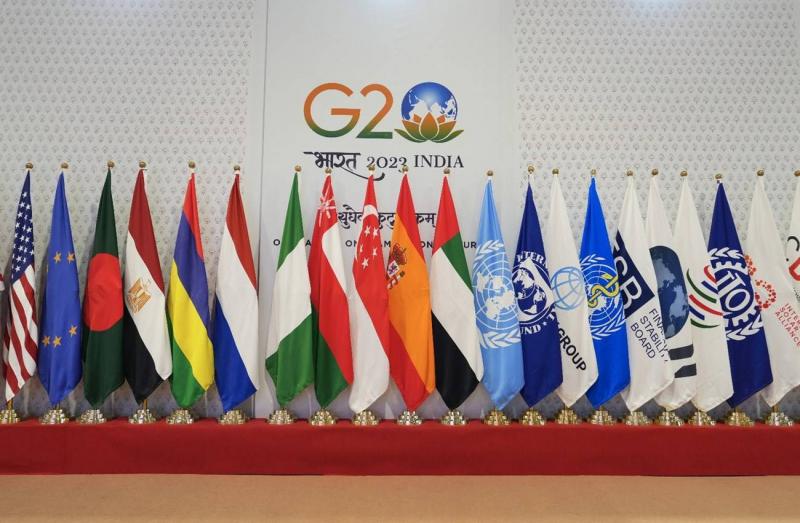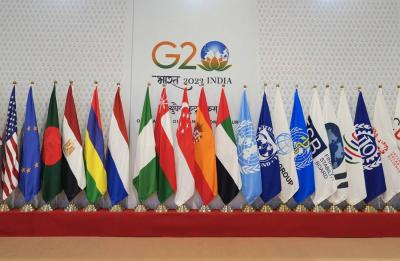For months, numerous seminars, conferences, and closed dialogues have been held, half of which focus on the upcoming international system, while the other half concerns the new shape of the Middle East. Common elements exist in both topics, foremost being that the international situation is currently undergoing change and development both now and in the near future. There is also a near consensus that we will witness the emergence of a new power, adding to or at the expense of traditional increments.
It has become clear that there is a lack of clarity regarding international and regional policies and upcoming events. Do leading nations adopt active, interventionist, and interactive policies on the international and regional levels, or do they tend towards contraction and isolation, focusing solely on essential and direct national interests? In light of the exceptional circumstances we are experiencing internationally and regionally, it may be appropriate to deviate from the traditional approach of presenting justifications before sharing my opinions, and instead, to first articulate my key takeaway from participating in and observing several of these forums and occasions. This takeaway is that we are currently in a stage of extended contradictions regarding who the leaders are, their policies, positions, and practices, and it is evident that we are in a phase of labor and formation.
There are many extensive indicators and illogical contradictory positions that suggest we have reached a stage of confusion. Today, I focus only on the international situation, exemplified by the fact that since the emergence of globalization, the issue has sparked much debate and conflicting opinions. Initially, the world promoted it as an ideal means for community integration and a clear indicator of the superiority of Western liberal community philosophies regarding individual rights, in addition to being the best way to ensure the efficient performance of market economies and to streamline the arrival of goods to consumers at the lowest price and highest profit margin for manufacturers.
At first, globalization was received positively, even among enemies and competitors of the West in the Soviet Union and China, coinciding with a reform phase for both post-Cold War in the Soviet Union and the Cultural Revolution in China, leading to significant economic changes in both countries. Meanwhile, the developing world felt that globalization was a characteristic of modern colonialism being realized through advanced economic mechanisms, favoring the interests of major multilateral economic entities while stifling and destroying small and medium-sized entities that are more prevalent in developing countries.
As experiences and events multiplied, many views on large consumer systems, particularly globalization, changed and took shape, leading to a growing global conviction that we live and progress or fail together. Thus, we must always give more attention to sustainable development for all and consider the impact of developmental momentum on the environment, climate, and water resources, among others. It became apparent that zero-sum equations often yield short-term achievements at the expense of the public interest in the long and even medium term. Despite all the warnings and social costs, developing countries began to look more positively at globalization as a number of them transcended the global poverty line and created a considerable number of jobs.
As time progressed and experiences multiplied, Russian and Chinese reservations intensified, with concerns that the mechanisms of Western economic globalization served as a political and social cover for attempts to impose Western political dominance over the international system, particularly with the emergence of a unipolar phase after the Cold War. Political currents in the West began warning against increasing openness to the world and adopting economic policies.
The Ukrainian war is among the repercussions of these modern international contradictions that have shattered the myth that the European arena is a space for peace and dialogue, and that since World War II it has irrevocably moved beyond military confrontations and clashes. Currently, in Ukraine, every party claims it is achieving positive results, although the realities on the ground indicate that the situation is much worse than before the outbreak of battles. The West did not force Russia to withdraw from the territories it occupied, and Russia now faces a larger number of NATO member states at its borders following Finland and Sweden's accession, along with Putin's recent reshuffling of some military leadership, and the comedy surrounding the Wagner military group serves as indicators of uncertainty.
There have been sudden events and developments in the European arena, some of which are viewed as responses to various challenges, such as globalization and the desire to preserve national identity. This includes pressures from the influx of refugees into Europe or the repercussions of the Ukrainian war which have fostered polarization against Russia on one side and isolationism on the other. These events may explain many contradictory European positions, including the rise of right-wing movements in several European countries during the European Parliament elections, prompting the French president to call for swift parliamentary elections, which concluded unexpectedly with a right-wing victory. This failure was attributed to Macron's electoral campaign focusing too heavily on his strong stance against Putin concerning Ukraine. Following this, the British Prime Minister called for swift elections last weekend despite public opinion polling unfavorable to his Conservative party.
We have witnessed a Russian-Chinese rapprochement aimed at balancing American-Western movements, as well as Russian-Korean presidential visits for the first time in over two decades due to Western and Chinese sensitivities, which played a significant role with North Korea. Additionally, tensions have surfaced between China and Asia, as well as in Latin America between Brazil and Argentina, the region’s largest economies, as they veered in opposing directions, leading the Brazilian president to avoid a meeting with Argentina's elected right-wing president.
There are several questions about the American situation in light of the unclear directions of American society in the 21st century; the presidential elections are a prime example of the confusion, with one candidate doubted by many regarding his abilities to perform due to health issues related to age, while another faces charges and convictions in various cases, in addition to doubts about his interest in public issues. Regardless of the outcome between them or any sudden changes in the upcoming weeks, international positions have also shown contradictions from countries supporting law and rights that uphold freedom and human rights regarding the bloody events in Gaza and Israeli crimes against innocents there. These contradictions and excesses will undoubtedly have a clear and immediate impact on international rates and the contemporary international system in the upcoming phase.
It is not an exaggeration to describe our current situation as one of confusion due to the difficulty of making complete assessments, a sensitive phase that calls for caution, careful calculations, and specific measured steps, laying the groundwork for upcoming opportunities and challenges. Further discussion on the reformation of the Middle East will follow in a dedicated upcoming article on our tumultuous region.




